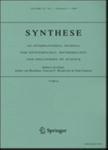版权所有:内蒙古大学图书馆 技术提供:维普资讯• 智图
内蒙古自治区呼和浩特市赛罕区大学西街235号 邮编: 010021

作者机构:Macquarie Univ Dept Philosophy Sydney NSW 2109 Australia
出 版 物:《SYNTHESE》 (Synthese)
年 卷 期:2018年第195卷第6期
页 面:2541-2557页
核心收录:
学科分类:01[哲学] 0101[哲学-哲学] 0712[理学-科学技术史(分学科,可授理学、工学、农学、医学学位)]
基 金:Australian Research Council [FT140100 422]
主 题:Predictive coding Free energy principle Homeostasis Good regulator theorem Extended mind Explanation
摘 要:The so-called dark room problem makes vivd the challenges that purely predictive models face in accounting for motivation. I argue that the problem is a serious one. Proposals for solving the dark room problem via predictive coding architectures are either empirically inadequate or computationally intractable. The Free Energy principle might avoid the problem, but only at the cost of setting itself up as a highly idealized model, which is then literally false to the world. I draw at least one optimistic conclusion, however. Real-world, real-time systems may embody motivational states in a variety of ways consistent with idealized principles like FEP, including ways that are intuitively embodied and extended. This may allow predictive coding theorists to reconcile their account with embodied principles, even if it ultimately undermines loftier ambitions.